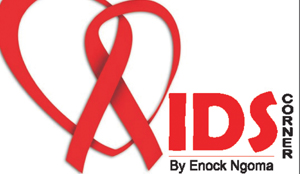 THIS week, I seek to share with you the reader some information on recent happenings in the field of HIV/AIDS in the United States of America (USA). You might be aware that the USA is the largest contributor to the fight against HIV/AIDS globally. Here is a fact sheet:
THIS week, I seek to share with you the reader some information on recent happenings in the field of HIV/AIDS in the United States of America (USA). You might be aware that the USA is the largest contributor to the fight against HIV/AIDS globally. Here is a fact sheet:
HIV Cure Research Fact Sheet
December 2014 – Combination antiretroviral therapy (ART) is a highly effective treatment for HIV infection, preventing progression of the disease in the vast majority of recipients.
When ART is accessible and started early in the course of infection, the lifespan of HIV-positive people is typically very close to that of comparable HIV-negative people. But ART can have toxicities, is often costly, and requires strict daily pill taking that can lessen quality of life. Because of the limitations of ART, a cure for HIV infection remains a vital goal for research.
2014 Report on Tuberculosis Research Funding Trends, 2005–2013
October 22, 2014 – Reader beware: funding data presented in this report may be less encouraging than they appear.
A quick glance at Treatment Action Group’s ninth annual Report on Tuberculosis Research Funding Trends would suggest good news: funding for tuberculosis research and development (TB R&D) increased by US$37.9 million over 2012 to reach a total of $676.7 million in 2013. The foundation of the TB research enterprise, however, is shakier than at any other time since Treatment Action Group (TAG) began tracking funding levels in 2005.
The basics of generic medications, bio-equivalence, and the push for good manufacturing practices.
Securing access to generic drugs to treat HIV, hepatitis C virus (HCV), and tuberculosis (TB) is now one of the most prominent strategies of global health care and treatment activism.
The Road to Treatment Access
Generic drug registration, licensing, and a trip to Gilead’s islands
Access to essential medicines is part of the human right to health. But several steps are needed to create access to generics, including registration and licensing. Understanding these steps is critical for effective advocacy.
Safeguarding against Stock-Outs
The time has come for the US tuberculosis programmes to have full access to the Stop TB Partnership’s Global Drug Facility procurement and stockpile safety nets.
In the United States, where low-prevalence diseases like tuberculosis (TB) are at the mercy of limited market competition among generic drug makers, which can result in drug shortages when manufacturing or distribution problems arise.
Generics vs the Giant
For people with drug-resistant tuberculosis (DR-TB), generic linezolid may be a lifesaver. But only if quality-assured versions are available and affordable
As new drugs bedaquiline and delamanid offer renewed hope of treating DR-TB, doctors and programs are faced with the challenge of finding companion drugs to create regimens to which patients’ TB is still susceptible. For this reason, interest in procuring linezolid has been increasing.
Sex workers, their clients and regular partners are but some of the key populations at risk for HIV infection. Contextual factors such as stigma and poverty may further exacerbate sex workers’ vulnerability to HIV.
Interventions aimed at empowering sex workers and providing them with HIV prevention, treatment and care, and support services have proven effective in a wide range of formal and informal sex work settings.
Sex workers should be proactively involved in programme design and delivery. The needs and vulnerabilities of sex workers should be considered. Legal and social frameworks, consistent with human rights principles, are also needed.
Priority interventions targeting prevention of sexual transmission of HIV and other STIs among sex workers should include:
-Promoting and supporting condom use
-Detection and management of sexually transmitted infections
-Behaviour change communication through peer outreach
-HIV testing and counselling
-Antiretroviral treatment
HIV and STI prevention activities for sex workers can be delivered through health facilities, community-based settings and through peer outreach.
Next week, I hope to share with you a personal experience of a clergyman who has fought cancer through different types of treatment especially the local herbal, Mailacin.
For comments write to knoxngoma@gmail.com or text/SMS +260955883129






